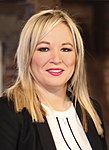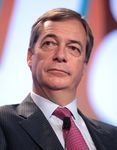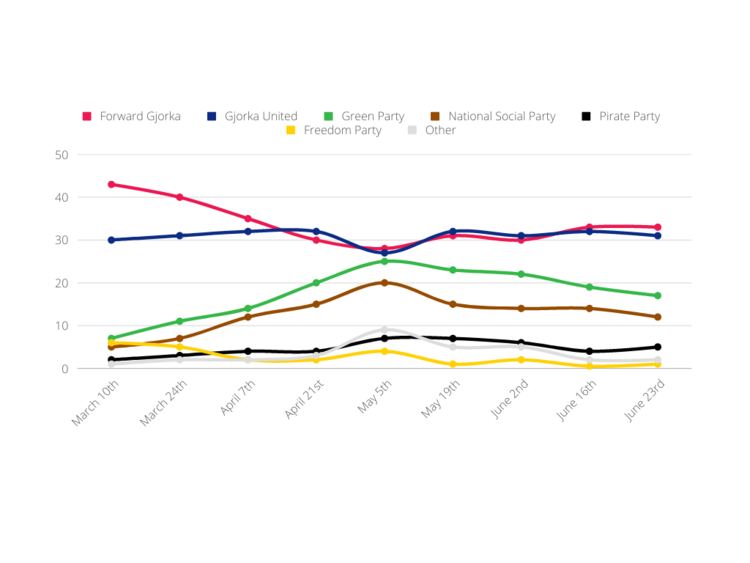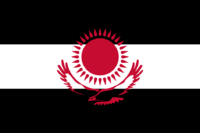2021 Gjorkan National Assembly election
| |||||||||||||||||||||||||||||||||||||||||||||||||||||||||||||||||||||||||||||||||||||
| Turnout | 38,872,461 (54.7%) | ||||||||||||||||||||||||||||||||||||||||||||||||||||||||||||||||||||||||||||||||||||
|---|---|---|---|---|---|---|---|---|---|---|---|---|---|---|---|---|---|---|---|---|---|---|---|---|---|---|---|---|---|---|---|---|---|---|---|---|---|---|---|---|---|---|---|---|---|---|---|---|---|---|---|---|---|---|---|---|---|---|---|---|---|---|---|---|---|---|---|---|---|---|---|---|---|---|---|---|---|---|---|---|---|---|---|---|---|
| |||||||||||||||||||||||||||||||||||||||||||||||||||||||||||||||||||||||||||||||||||||
| |||||||||||||||||||||||||||||||||||||||||||||||||||||||||||||||||||||||||||||||||||||
The 2021 Gjorkan National Assembly Election was held on June 30, 2021 across Gjorkabto elect the member of the National Assembly. The election took place on the same day as the 2021 Gjorkan presidential election.
The election was a historic low for major parties as both Forward Gjorka and Gjorka United lost seats in the election. Gjorka United finished with a plurality of seats in 183 while Forward Gjorka finished with 158 seats, a 61 seat drop from 2016. The Green Party achieved their best ever result winning. 71 seats, a 63 seat increase from the last election. While at the same time, the National Social Party also secured their best ever result winning 26 seats. The election ended the decade long control of the National Assembly by Forward Gjorka since the 2011 election, and saw Gjorka United control the most number of seats since the 2006 election. Following the election, the Green Party and Forward Gjorka negotiated a majority coalition known as the Pink-Green Coalition.
Contents
Background
Since the 2016 Gjorkan National Assembly election, Forward Gjorka had a plurality of seats in the National Assembly. They were able to work out a confidence and supply deal with the Green Party to re-elect Zachary Hill as Majority Leader. Despite this agreement, the Green Party and Forward Gjorka had significant disagreements. The Green Party campaigned for a total ban of coal and oil in Gjorka by 2025, and refused to negotiate with Forward Gjorka on the issue who wanted to ban just coal by 2027. This combined with lack of support from any of the other parties in the National Assembly led to a dead-locked parliament. Very few of President Vanderburg's second term goals were passed and led to both his and Forward Gjorka's approval rating dropping. By mid 2020, President Vanderburg faced a 39% approval rating and Forward Gjorka as a whole faced 33% approval.
Following Julian Vanderburg's nomination in the 2021 Forward Gjorka presidential primaries, Zachary Hill was selected to be his nominee to be Vice President. Two days later on March 7, Edward Flannagan was selected by party leader to be Forward Gjorka's leader in the upcoming election.
Jame Gary stepped down as the Green Party's National Assembly representative following the parties disappointing result in the 2016 election. She was initially succeeded by Greg Hamerfell, one of the parties co-founders, as National Assembly leader. However, he was challenged in a leadership election in mid 2018 by recently elected member Patricia Adams for leadership. Her leadership bid was successful and on June 8, 2018 Hamerfell stepped down as leader for Adams.
Minority Leader Ava Ross remained Gjorka United's National Assembly leader despite protests from the far-right of the party namely former Vice President Kurt Josias. As did National Social Party leader Andrew Tabor, Freedom Party leader Sher Homes, and Gjorkan Pirate Party leader Seban Alloy.
Electoral System
Gjorka uses the mixed-member proportional representation system, a system of proportional representation combined with elements of first-past-the-post voting. Each voter can cast two votes: a constituency vote (first vote) and a party list vote (second vote). Members are either elected to serve from a constituency directly or to serve from the district via proportional votes from each party.
Campaign
Parties and Leaders
| Name | Ideology | Leading candidate(s) |
Leader(s) | 2017 result | ||||
|---|---|---|---|---|---|---|---|---|
| Votes (%) | Seats | |||||||
| AG | Forward Gjorka Ar aghaidh Gjorka |
Social Democracy | Edward Flannagan | Alex MacGovern | 40.1% | 219 / 450
| ||
| GA | Gjorka United Gjorka Aontaithe |
Conservatism | Ava Ross | Sean Wolfe | 37.2% | 202 / 450
| ||
| PSN | National Social Party Páirtí Sóisialta Náisiúnta |
Fascism | Andrew Tabor | Andrew Tabor | 6.7% | 10 / 450
| ||
| CG | Green Party Comhaontas Glas |
Green Politics | Patricia Adams | Jame Gary | 6.1% | 8 / 450
| ||
| PS | Freedom Party Páirtí Saoirse |
Libretarianism | Sher Homes | Sher Homes | 3.6% | 4 / 450
| ||
| CP | Gjorkan Pirate Party Cóisir Pirate Gjorka |
Pirate Politics | Seban Alloy | Seban Alloy | 1.2% | 1 / 450
| ||
Major Issues
The 2021 National Assembly election was sidelined by the 2021 Gjorkan presidential election due to the fact President Roman Vanderburg was ineligible to run for a third term, and would have a new successor. Following decreases in poll numbers for Julian Vanderburg and Carter Morris, Forward Gjorka and Gjorka United faced similar decline in poll numbers. Despite this, leaders from all major parties fought to prioritize the National Assembly election.
The main issues Forward Gjorka emphasized were the banning of coal in Gjorka by 2027, increase in minimum wage to $20, further funding to Gjorka's healthcare system, and loosening of Gjorka's immigration restrictions among others. Throughout the campaign Forward Gjorka faced major issues with a public perception of being elitist. In a poll from the Gjorka Times, 54% of respondents found former leader Zachary Hill to be "out of touch" and 45% found new leader Edward Flannagan to also be "out of touch".
Gjorka United broadly focused on the reduction of taxes and restrictions on Gjorka businesses, repealing or altering the Universal Healthcare Act, increased presence for Gjorka on the world stage among others. However, individual candidates expressed a wide range of views ranging from centrism to right-wing populism. Leader Ava Ross struggled to unite the party in the election with the hashtag "Gjorka Disunited" trending throughout the election. In a poll from the Gjorka Times, 43% of respondents said they did not have a "clear understanding of Gjorka United's platform".
Following a disappointing campaign in 2016, the Green Party focused on more socialist policies under new leader Patricia Adams. Most importantly, Adams distanced the party from it's support of militarization and focused more on issue like banning of coal and oil by 2027, banning of gas cars by 2030, increasing capital gains tax, and complete nationalization of the healthcare sector. Adam was found to be particularly charismatic by national voters. Even as poll numbers from Sindy Ross, the Green Party's presidential candidate, declined, the Green party overall stayed consistent and only dropped towards the end as Forward Gjorka heightened fears of Green party spoiler vote.
Andrew Tabor and the National Social Party ran under a similar platform to their previous campaigns. Issues such as removing restrictions on the police, tightening Gjorka's immigration policy, increasing the military budget, and withdrawing further from the world stage among others. The party's campaign increased it's focus on elections outside of Roscommon and Northern Gjorka, particularly in Rosemont and Protterland.
The Gjorkan Pirate Party shifted much of it's focus from e-democracy and direct democracy to an anti-corruption and anti-establishment message. Due to his status as presidential nominee for the party in 2021 Gjorkan presidential election, Seban Alloy took a less active role as party leader. This led to most candidates taking a door to door campaign approach with significant on the ground campaigning.
The Freedom Party's success in 2016 under leader Sher Homes emboldened the party to take more hardline libertarian stances. Homes joined presidential candidate Alexander Godfried in advocating for small government, reduction of taxes, and most controversially the elimination of the age of consent. Homes himself was down double digits in polling for his constituency in Baltimore following this change in stance. Overall poll numbers for the party significantly dropped.
Opinion Polls
Results
Polls closed across Gjorka at 8:00 pm GST on June 30, and from then on results were released from each district. Due to the extremely close nature of most races, the 2021 election was the longest election to call since the invention of electronic voting. At 4:00 am the next morning, Gjorka Times officially predicted a hung national assembly and at 7:00 am officially predicted a Gjorka United plurality in seats. The election saw 54.7% turnout, down significantly from the 71.2% turnout in the 2016 election.
The result showed Gjorka United in control of a plurality with 183 seats, down 19 from 2016, and Forward Gjorka with the largest opposition at 158, down 61 from 2016. The Green Party gained the most seats at 63, resulting in 71 total seats. The National Social Party also secured their best ever result, increasing by 16 seats from 10 to 26. Lastly the Gjorka Pirate Party secured a gain of 4 from 1 to 5, and the Freedom Party was the only third party to face a decrease as they fell from 4 seats to just one. All 6 independent candidates elected in 2016 retained their seats.
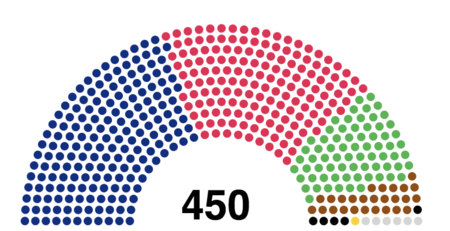 | |||||||
| Party | Party-list | Constituency | Seats | +/– | |||
|---|---|---|---|---|---|---|---|
| Votes | % | Votes | % | ||||
| Gjorka United | 12,059,128 | 31.40 | 12,059,128 | 31.40 | 183 | −19 | |
| Forward Gjorka | 12,135,938 | 31.60 | 12,135,938 | 31.60 | 158 | −61 | |
| Green Party | 6,452,018 | 16.80 | 6,452,018 | 16.80 | 71 | +63 | |
| National Social Party | 4,570,179 | 11.90 | 4,570,179 | 11.90 | 26 | +16 | |
| Gjorkan Pirate Party | 1,958,648 | 5.10 | 1,958,648 | 5.10 | 5 | +4 | |
| Freedom Party | 384,048 | 1.00 | 384,048 | 1.00 | 1 | −3 | |
| Independents/Others | 844,907 | 2.20 | 844,907 | 2.20 | 6 | 0 | |
| Total | 38,404,866 | 100.00 | 38,404,866 | 100.00 | 450 | 0 | |
| Valid votes | 38,404,866 | 98.80 | 38,404,866 | 98.80 | |||
| Invalid/blank votes | 467,589 | 1.20 | 467,589 | 1.20 | |||
| Total votes | 38,872,455 | 100.00 | 38,872,455 | 100.00 | |||
| Registered voters/turnout | 70,210,005 | 55.37 | 70,210,005 | 55.37 | |||
Voting Summary
Seats Summary
Analysis
| Sociology of the electorate | |||||||||
|---|---|---|---|---|---|---|---|---|---|
| Demographic | GA | AG | CG | PSN | CP | PS | Others | ||
| Total vote | 31.4% | 31.6% | 16.8% | 11.9% | 5.1% | 1.0% | 2.2% | ||
| Sex | |||||||||
| Men | 32.0% | 30.1% | 15.7% | 13.5% | 4.5% | 1.7% | 2.5% | ||
| Women | 30.9% | 33.2% | 17.7% | 10.1% | 5.5% | 0.5% | 2.0% | ||
| Age | |||||||||
| 18–24 years old | 17.1% | 29.9% | 30.1% | 13.3% | 8.1% | 0.1% | 1.4% | ||
| 25–34 years old | 20.5% | 35.3% | 23.7% | 7.1% | 10.3% | 0.5% | 2.6% | ||
| 35–44 years old | 31.9% | 32.2% | 16.4% | 9.9% | 5.9% | 1.0% | 2.7% | ||
| 45–59 years old | 34.7% | 30.9% | 12.8% | 14.9% | 2.6% | 1.5% | 2.6% | ||
| 60–69 years old | 35.8% | 17.8% | 6.6% | 36.0% | 0.8% | 2.0% | 1.0% | ||
| 70 or older | 53.6% | 27.1% | 6.9% | 3.0% | 3.0% | 2.5% | 3.9% | ||
| Socio-occupational classification | |||||||||
| Unemployed | 25.1% | 33.2% | 22.2% | 10.5% | 6.1% | 0.8% | 2.1% | ||
| Blue-collar worker | 29.4% | 32.0% | 17.8% | 14.6% | 3.2% | 1.0% | 2.0% | ||
| White-collar worker | 35.7% | 32.8% | 10.8% | 11.1% | 5.3% | 1.2% | 3.1% | ||
| Self-employed | 40.1% | 27.7% | 8.3% | 15.6% | 4.5% | 2.0% | 1.8% | ||
| Retired | 45.7% | 20.4% | 6.9% | 20.1% | 2.5% | 2.1% | 2.3% | ||
The election was the first in Gjorkan history where both parties that finished top two in the last election lost seats. Gjorka United's plurality of 183 is the lowest number for the largest party since the 2001 National Assembly election, where Gjorka United also won a plurality at 170. Overall the election was successful for third parties as the Green Party's 71 seats were the most won by a third party since the 2001 election.
Both Gjorka United and Forward Gjorka's lack of success pointed to a general discontent with both parties platforms. Gjorka United ran a large variety of candidates from centrists to right-wing populists and thus was unable to establish a clear platform that resonated with the larger populace leading to their poor performance. One the other hand, Forward Gjorka's large drop of 63 seats was attributed to the parties "elitist" status it had gained during the presidency of Roman Vanderburg. The Forward Party's leaders in the election: National Assembly leader Edward Flannagan, presidential candidate Julian Vanderburg and vice presidential candidate Zachary Hill were all found to be "out of touch" with 45%, 51% and 54% respectively.
The Green Party's success in the election is attributed most crucially to their shift in message under new leader Patricia Adams. Under the leadership of their previous leader Jame Gary, the party was described as "extremist". Under Adams new platform which focused much more on economic policies like state owned healthcare, the party found much more success. Similarly, the National Social Party also found success due to their change in strategy. For the first time the party placed heavy emphasis on candidates in districts like Rosemont, Protterland and Dundalk. This emphasis was rewarded as the party picked up seats in Baltimore and Dundalk for the first time as well as increasing their number of seats in Protterland.
Seban Alloy and the Gjorkan Pirate Party had significant success in the election, particularly with young voters more inclined to the party's technology centered platform. In contrast the election was disastrous for the Freedom Party who lost all but one of their seats including leader Sher Homes. The parties new hardline platform, particularly on issues like the age of consent, were not popular among voters.
Aftermath
Following both the National Assembly and presidential result, there was a large outcry from Forward Gjorka and other left-wing activists over the results. Despite winning the popular vote by 0.2%, Forward Gjorka placed second in seats by nearly 5%. Calls for instituting nationwide ranked choice voting were supported by Patricia Adams and Seban Alloy in their concession speeches along with members of the socialist wing of Forward Gjorka. As well, despite only becoming leader three months before the election, there were calls within Forward Gjorka to oust Edward Flannagan, though the movement did not receive enough support.
Despite calls for her to do so, Ava Ross announced in her victory speech following the election announced she was not resigning and instead planned to lead the party in the coming legislative term. This announcement faced significant criticism from within Gjorka United given the party's poor performance under her leadership, and sparked a leadership challange. Kurt Josias was able to secure enough signatures and assembly member support to challenge Ross in a leadership election. Ultimately Josias was defeated by Ross despite the challenge.
Coalition Formation
Immediately following the election, the Forward Gjorka and the Green Party announced they had opened negotiations for a possible coalition for majority control. The two parties had previously negotiated a confidence and supply agreement following the 2016 election. These negotiations spanned three months, and nearly overlapped into the legislative term. Main issues stemming for lack of agreement over environmental issues, particularly setting a date for eventual banning of oil use. However on September 27, the two parties announced they had agreed to form a majority coalition known as the Pink-Green Coalition. They released a shared manifesto which called for a $20 minimum wage, end to coal usage by 2026, and end to oil usage by 2032 among other things. As part of the agreement, the Green party agreed to support Edward Flannagan's bid for majority leader, which he successfully won.
Shortly after the Green Party's and Forward Gjorka's announcement of coalition negotiations, Ava Ross announced Gjorka United's intention to form a grand coalition. The party opened negotiations with the National Social Party and the Freedom Party for a coalition. As well it was the coalitions intention to sway possible centrist Forward Gjorka members to their side in order to form a majority. During the negotiating process, PSN leader Andrew Tabor claimed several times that Gjorka United was stalling the negotiation, and theze coalition negotiations were nothing more than a front to pressure Forward Gjorka. Despite this the three parties were able to negotiate a shared coalition, and on September 29 they announced the National Coalition and their support for Ava Ross's leadership bid. Due to the coalition's status of less than 225 seats, Ross was inevitably defeated by Flannagan in the leadership election.


